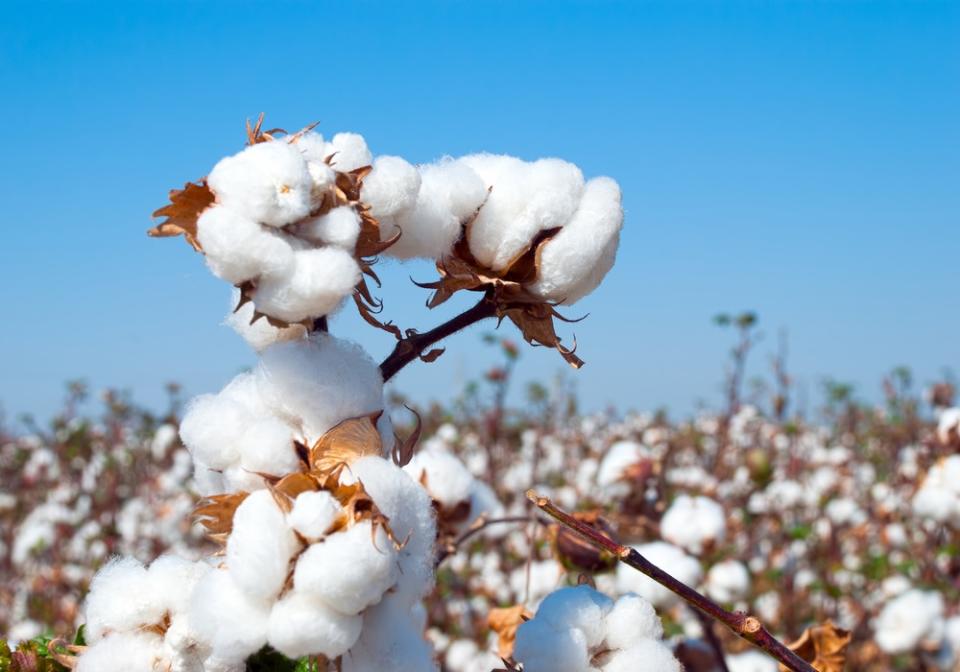Can a DOL-Backed Program Turn Uzbek Cotton’s ‘Yellow Light’ Green?

A raft of business and human rights organizations this week inked a “groundbreaking” new memorandum of understanding that seeks to improve working conditions and prevent forced labor at “all stages of cotton and textile production” in Uzbekistan.
The two-year agreement, whose signatories include the Center for International Private Enterprise (CIPE), the Association of Cotton-Textile Clusters of Uzbekistan, the Solidarity Center and the Uzbekistan Ministry of Employment, is a “cornerstone” of a new CIPE-Solidarity Center project that seeks to build on efforts to reform the Central Asian nation’s cotton supply chain following its decade-plus ice-out by the world’s biggest brands spooked by state-imposed modern slavery.
More from Sourcing Journal
Funded by the U.S. Department of Labor, “Enhancing Transparency and Accountability in the Cotton Industry of Uzbekistan” will comprise an “effective” worker-led reporting and grievance remedy system, plus an education and incentive system for workers, managers and employers that promotes compliance with standards of transparency, labor rights and good corporate governance through tripartite mechanisms and improved dialogue.
“The Solidarity Center looks forward to working with CIPE and the Cluster Association to support [the] development of a cotton industry in Uzbekistan that is recognized and rewarded in the global marketplace for upholding labor standards at the highest levels,” Shawna Bader-Blau, executive director at the Solidarity Center, said at the program’s launch in Tashkent last month.
The Solidarity Center, a worker rights organization based in Washington, D.C., is a member of the Cotton Campaign, a broad coalition of trade and civil society groups that led the boycott against Uzbek cotton in 2009. Backed by the likes of Adidas, H&M Group and Zara owner Inditex, the move was so successful that demand for Uzbek cotton careened from 50 percent of the country’s exports in 2000 to less than 1 percent, an Uzbek trade official told S&P Global Market Intelligence in 2019.
In March 2022, the International Labour Organization, which had been monitoring the cotton harvest in Uzbekistan under an agreement with the World Bank since 2015, declared Uzbekistan “free” of child and forced labor. The same month, the Cotton Campaign called off the blackballing, citing a breakthrough in the elimination of systematic child and forced labor from the country’s fields.
In a report for the campaign at the time, the Uzbek Forum for Human Rights wrote that Uzbekistan has demonstrated that it can harvest cotton “almost entirely” without coercion through growing mechanization, increased wages for cotton pickers, the abolishment of state regulation of cotton production and sales, and effective communication by the central government of its policies prohibiting modern slavery.

“For the first time, independent monitors did not document systemic, government-imposed forced labor organized by the central government in any of the areas monitored,” the report said. “Although there were some incidents of forced mobilization of state employees imposed by government officials, it was not on a scale that suggests it was coordinated by the central government.”
That September, the U.S. Department of Labor struck Uzbek cotton off its annual list of goods produced by child labor or forced labor. Better Cotton, the world’s largest sustainable cotton initiative, gave the fiber its vote of confidence when it announced a country-specific program in Uzbekistan last January.
But Allison Gill, forced labor program director at Global Labor Justice-International Labor Rights, another member of the Cotton Campaign, previously told Sourcing Journal that these actions do not “simply give a green light to buyers; it’s more like a yellow light.” She said that buyers still need to assess and address the human rights risks that remain, including the dearth of—at the time—credible monitoring, grievance and remedy mechanisms, restrictions on association, expression and assembly, and a lack of independent trade unions.
Last April saw Better Cotton suspend Indorama Agro, one of its Uzbek partners, following allegations by the Uzbek Forum of human rights abuses, including “land grabbing” and union busting, though the Singapore-headquartered firm has called slated these as “flawed, misleading and biased.” In December, the Uzbek Forum and Human Rights Watch filed a complaint accusing Uzbek authorities of shutting down a farmers’ cooperative in violation of internationally protected rights to freedom of association and organization.
“The right of farmers in Uzbekistan to form and function as cooperatives is protected in national legislation and in international labor and human rights law,” said Uzbek Forum director Umida Niyazova of the association, which the producers created to allow them greater control over the terms of sale of their raw cotton, rather than obligating them to release it to a specific private-sector cotton-textile cluster, as per government policy. Farmers also faced harassment, she said.
“Permanently shutting down a farmers’ cooperative would be a serious blow to freedom of association and the right to organize and would serve as a major setback to Uzbekistan’s agricultural reform agenda,” said Mihra Rittmann, senior Central Asia researcher at Human Rights Watch. “All eyes will be on the upcoming appeals hearing as a test of Uzbekistan’s commitment to its international labor and human rights obligations.”
At the CIPE-Solidarity Center project’s debut, Abdulwahab Alkebsi, managing director for programs at CIPE, expressed confidence its plan.
“We believe that our partnership will support the creation of effective management systems and serves to strengthen social protection, improve labor relations based on international standards and create decent and safe working conditions for workers,” he said.

